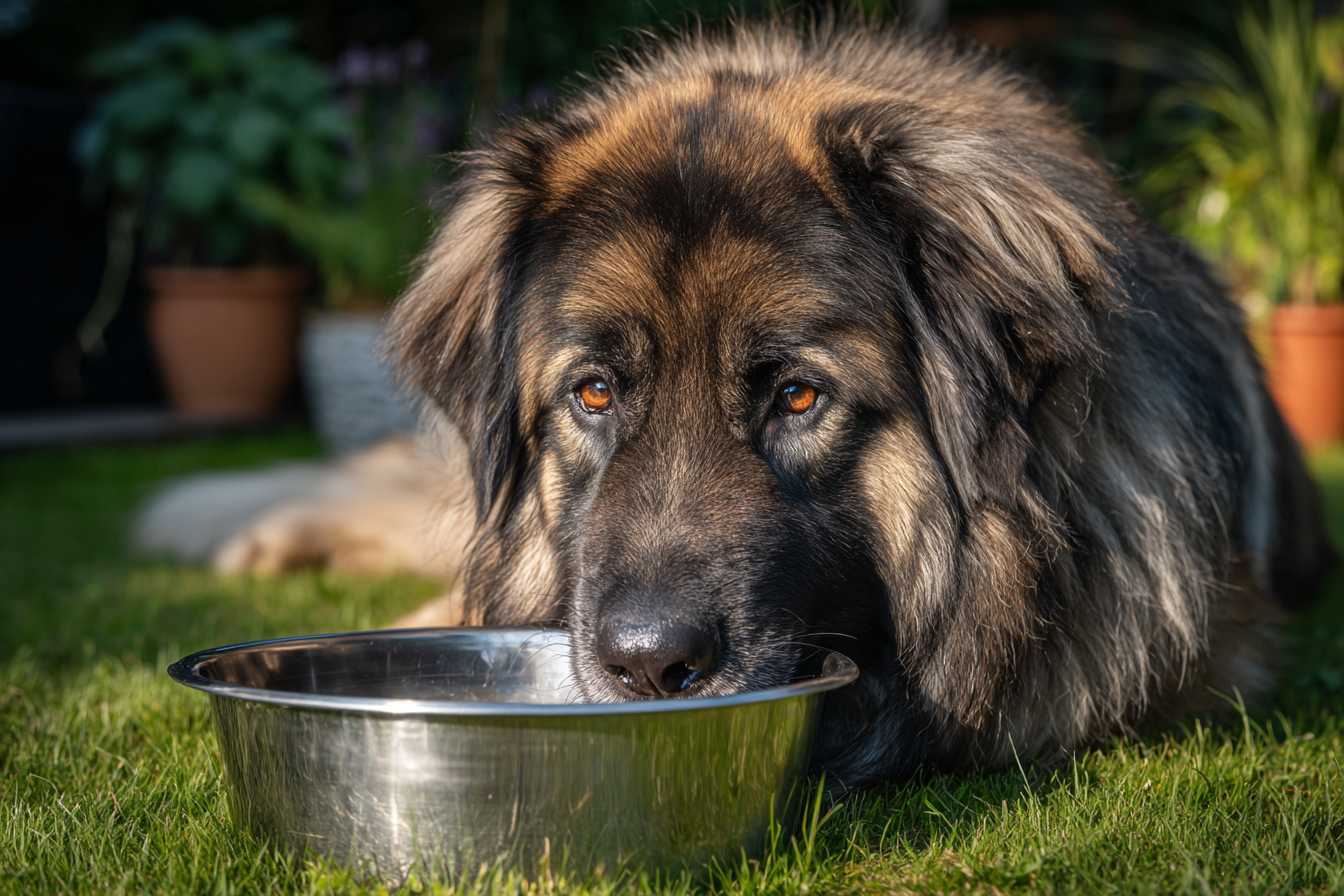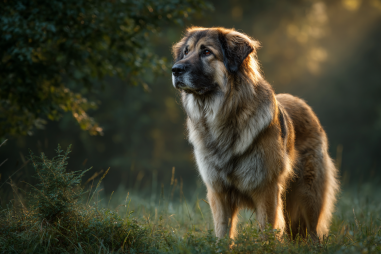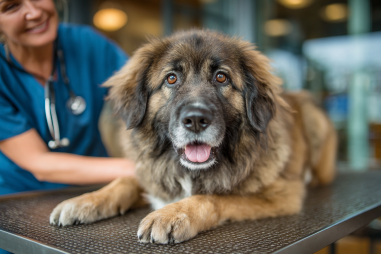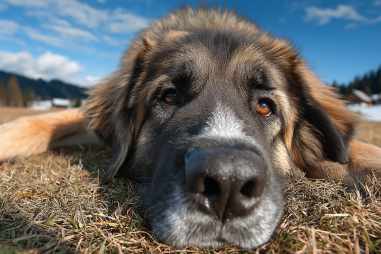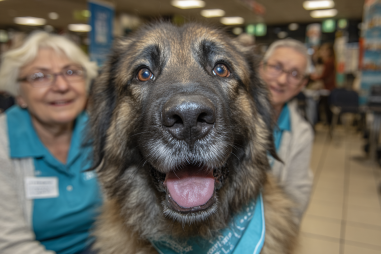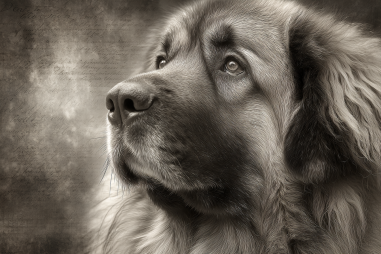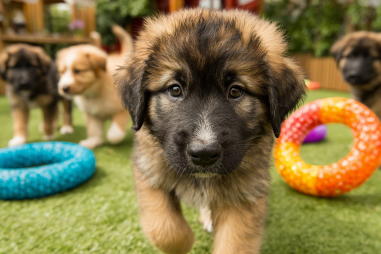Feeding a Leonberger properly is essential to support the rapid growth, maintain its massive frame, and promote a long, healthy life. These gentle giants have unique nutritional needs that differ from smaller breeds, making it important for owners to understand the best feeding practices. From puppyhood through adulthood, the right diet will help prevent common health issues and ensure your Leonberger stays active and happy. Let’s dive into optimal feeding guidelines tailored specifically for this big, lovable breed.
Nutritional Needs of a Leonberger
Leonbergers are large, muscular dogs with high energy requirements. Their diet must be carefully balanced to support strong bone and joint development while providing sufficient calories for their daily activities. Due to their size, they are prone to joint problems like hip dysplasia, so nutrients such as glucosamine, chondroitin, and omega fatty acids are beneficial for maintaining joint health.
Leonbergers also need a diet rich in high-quality protein to build and maintain muscle mass. Proteins from sources like chicken, beef, lamb, or fish provide essential amino acids vital for cell repair and growth. Additionally, a good balance of carbohydrates and healthy fats is necessary for sustained energy without causing weight gain, which could stress their joints.
Puppy vs Adult Feeding Differences
The feeding requirements of Leonberger puppies differ significantly from those of adult dogs. Puppies grow quickly and need more calories, vitamins, and minerals per pound of body weight compared to adults. Feeding a diet specifically formulated for large-breed puppies is crucial, as these diets are designed to support slow, steady growth and prevent developmental disorders like osteochondrosis.
During the puppy stage, it is common to increase feeding frequency to three or four meals a day to avoid overwhelming their digestive system. As they reach adulthood, usually around 18 to 24 months, you can transition to adult maintenance food and reduce feeding to twice a day. Adult Leonbergers require fewer calories per pound but still need nutrient-dense foods to maintain their muscle mass and support overall health.
Recommended Types of Food
When choosing food for your Leonberger, high-quality commercial dog foods formulated for giant breeds are an excellent choice. These often include balanced levels of protein, fat, and special nutrients targeted at supporting large dogs. Look for options with named meat sources as the first ingredient, whole grains, and added joint supplements.
If you prefer a homemade diet, it’s important to consult with your veterinarian or a canine nutritionist to ensure it meets all your dog’s nutritional needs. Homemade diets might include:
- Lean meats such as chicken, turkey, or beef
- Cooked vegetables like sweet potatoes, spinach, and carrots
- Whole grains like brown rice or quinoa
- Healthy fats from fish oil or flaxseed
Additionally, raw feeding enthusiasts may consider a balanced raw diet that includes muscle meat, organ meat, bones, and vegetables. However, raw diets require careful management to prevent nutritional imbalances and food safety issues.
Portion Sizes and Feeding Frequency
Portion control is vital for Leonbergers to prevent obesity, which can exacerbate joint problems. Portions depend on age, weight, activity level, and metabolism, but general guidelines recommend:
- Puppies: Feed 3 to 4 meals per day, gradually decreasing as they grow.
- Adults: Typically, two meals per day are sufficient to maintain energy and avoid bloat, a common concern in deep-chested breeds like Leonbergers.
A typical adult Leonberger weighing between 110 to 170 pounds may consume anywhere from 4 to 7 cups of high-quality dry food daily, split between two meals. Adjust portions based on your dog’s activity level and body condition. It’s always a good idea to follow the feeding guidelines on the food packaging as a starting point, and then fine-tune based on how your dog looks and feels.
Foods to Avoid
Certain foods can be harmful or toxic to dogs, and your Leonberger is no exception. Avoid feeding your dog:
- Chocolate – Contains theobromine, toxic to dogs.
- Grapes and raisins – Can cause kidney failure.
- Onions and garlic – Harm red blood cells and can cause anemia.
- Alcohol – Highly toxic even in small amounts.
- Cooked bones – Can splinter and cause internal injuries.
- Excess fatty or salty foods – Can lead to pancreatitis or other health issues.
Additionally, avoid table scraps that contain ingredients toxic to dogs and always keep feeding treats and snacks to a minimum to maintain a healthy weight.
Hydration and Supplements
Maintaining proper hydration is crucial for your Leonberger’s health. Always provide fresh, clean water and encourage regular drinking throughout the day, especially during hot weather or after exercise.
Supplements can play a supportive role, especially for joint health. Many Leonberger owners benefit from:
- Glucosamine and chondroitin supplements
- Omega-3 fatty acids (from fish oil)
- Multivitamins tailored for large breeds, if recommended by a vet
Before starting any supplements, consult your veterinarian to determine what might be beneficial based on your dog’s diet and health status.
Monitoring Weight and Condition
Regularly monitoring your Leonberger’s weight and body condition is imperative to prevent obesity and related health problems. Feeling your dog’s ribs and checking for a visible waistline are simple methods to assess body condition at home. Your vet can provide more precise evaluations during routine visits.
If your Leonberger is gaining excess weight or appears underweight, adjust feeding amounts accordingly and reassess exercise routines. Remember that even gentle giants require daily physical activity tailored to their abilities to maintain optimal health.
Feeding Your Leonberger for a Healthy Future
Feeding your Leonberger with care and attention ensures that this majestic breed thrives throughout its life. Providing a balanced diet suited to their stage of growth, being mindful about portion sizes, choosing quality foods, and avoiding harmful items all contribute to their well-being. Along with proper hydration and regular health monitoring, these nutrition tips give your giant friend the solid foundation needed to enjoy a happy, healthy life by your side.

